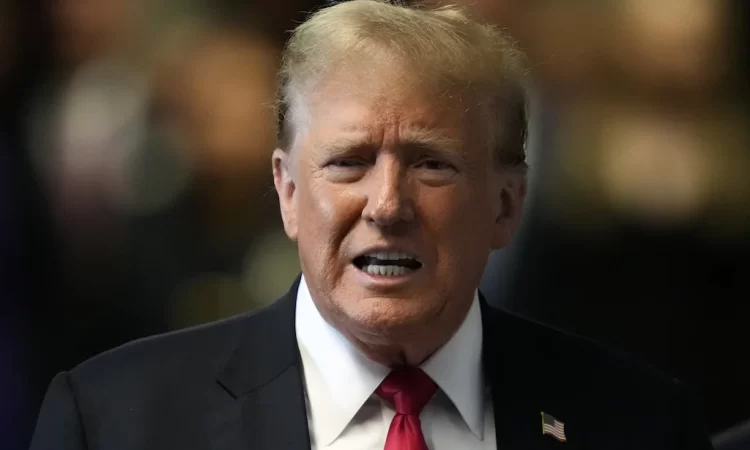
Following last week’s debate between President Joe Biden and former President Donald Trump, financial markets began to price in a Trump victory in the November presidential election. Treasuries sold off. Oil and gas stocks rallied. The broad market meandered. But as time passes, both equities and Treasuries should rally with the condition that Trump remains the probable winner in November. He is good for growth.
Trump, at least at a basic level, believes in free market capitalism and opposes big government, including the regulatory state. He believes strivers should be rewarded, not penalized. He does not want the United States to become like the European Union, where innovation is strangled, economic dynamism dies, and sloth is rewarded.
Trump wants lower taxes on business. Biden wants higher business taxes. But when business has more money, business invests more. That is the clear lesson of the Tax Cuts and Jobs Act. It is a straightforward equation: Investment drives productivity growth and innovation. Under a second Trump presidency, the U.S. economy would be more dynamic and unshackled from the regulatory state.
The market rightly worries about Trump’s fixation with tariffs as a way to address the structural trade deficit and as a revenue-raising mechanism. Tariffs are a clumsy form of consumption taxes, and they have a one-off inflationary effect. Importantly, when the U.S. imposes tariffs, it is American businesses and consumers who pay them.
This is not to say that all tariffs are bad. China is an enemy of the U.S. Tariffs against China are good policy. Trump also proposes increased tariffs against the European Union. The prospective benefits and costs of these EU-focused tariffs are mixed. However, the EU has declared war against U.S. technology companies. In recent days, the EU has proposed large financial penalties on Apple, Microsoft, Meta, and Nvidia. Trump’s tariffs against Europe would be an effective bargaining chip to compel the EU to stop using America’s technology giants as a piggy bank.
If Trump wins, Lina Khan at the Federal Trade Commission loses. Mergers and acquisitions activity would accelerate. The economy would be more efficient. The U.S. would be able to maintain its preeminent position in accelerated computing. The advantage that the U.S. enjoys in artificial intelligence would be maintained and supported. Again, China is the enemy. Trump would ensure that the U.S. competitive position of AI supremacy continues. He knows that AI is critical to U.S. national security. U.S. hyperscalers and semiconductor companies would thrive under a Trump presidency.
If Trump wins in November, the U.S. oil and gas companies will breathe relief and cheer. The U.S. is a dominant low-cost producer of carbon-based fuels. Cheap energy would fuel America’s industries. The moratorium against new liquified natural gas facilities would be removed. European industry would accelerate its move to the shores of America, where capitalism and cheap energy are fundamental.
Finally, there’s the uninformed belief that Trump would interfere in the functions of the Federal Reserve. He might shout about monetary policy, but he has no legal authority over the Federal Reserve or its chairman.
CLICK HERE TO READ MORE FROM THE WASHINGTON EXAMINER
The Federal Open Market Committee would continue to conduct policy consistent with its dual mandate of full employment and 2% inflation. It is important to remember that when Trump left office, inflation in the U.S. was running consistently under 2%.
Top line: Trump barks often, but his policy platform suggests a stronger economy should he be elected.
The author owns Nvidia stock.
James Rogan is a former U.S. foreign service officer who later worked in finance and law for 30 years. He writes a daily note on the markets, politics, and society.






